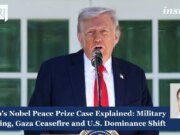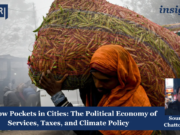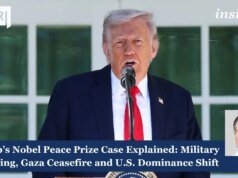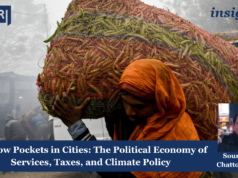Policy Update
Ilma Ahmad Samir
Introduction:
India and Qatar share a deep energy partnership, with Qatar being a key supplier of liquified natural gas (LNG) to meet India’s growing demand. As energy trade relies heavily on secure maritime routes, rising geopolitical tensions in the Gulf and threats to sea lanes have made security a shared priority.
To address these challenges, the India-Qatar Maritime Energy Security Dialogue has been launched to strengthen cooperation in safeguarding energy flows, enhancing naval cooperation, and building resilient supply chains. This policy update briefly examines the partnership’s significance and outlines ways to deepen collaboration for regional stability and energy security.
Background:
India and Qatar have built a deep, long-standing partnership centered on energy trade and maritime connectivity. This relationship has evolved over the past two decades, making Qatar a vital player in India’s energy security and broader regional strategy.
1. Strategic Energy Partnership
- Qatar supplies nearly 40% of India’s LNG imports, positioning itself as a crucial partner in meeting India’s rising energy needs.
- Beyond LNG, cooperation extends to crude oil, fertilizers, petrochemicals, and infrastructure investments, deepening economic interdependence.
- With India’s push for cleaner and more sustainable energy, Qatar’s role has become even more critical in supporting this transition.
2. Importance of Maritime Routes
- The Gulf region is a key hub for global energy flows, with vital shipping lanes such as the Strait of Hormuz facilitating oil and gas trade.
- These routes face growing threats including:
- Geopolitical tensions and regional conflicts
- Piracy and smuggling activities
- Disruptions from non-state actors and naval standoffs
- Any disruption directly impacts India’s energy supply chains and economic stability.
3. Expanding Cooperation Beyond Trade
- To address these risks, India and Qatar have broadened their partnership to include maritime security collaboration.
- This aligns with:
- India’s SAGAR vision (Security and Growth for All in the Region) – ensuring safe, open, and stable seas.
- Qatar’s strategic interest in safeguarding its export routes as one of the world’s largest LNG suppliers.
4. The Maritime Energy Security Dialogue
- The launch of this dialogue represents a strategic step forward, bringing together energy and naval cooperation.
- Its goal: to secure uninterrupted energy flows, strengthen resilience, and enhance regional stability through joint action.
Functioning:
The India–Qatar Maritime Energy Security Dialogue serves as a high-level platform linking energy trade with maritime security. It functions through regular meetings between policymakers, naval officials, and energy stakeholders to assess risks and coordinate responses.
The dialogue emphasises real-time intelligence sharing, enabling both nations to track threats such as disruptions in key routes, including the Strait of Hormuz. It also drives joint naval exercises and coordinated patrols, ensuring safe passage for LNG shipments and other vital cargo.
Beyond operations at sea, the mechanism works to secure ports, LNG terminals, and offshore facilities, while aligning energy policies with maritime strategies. This integrated approach transforms the partnership from simple trade cooperation into a strategic maritime-energy alliance, safeguarding regional stability and uninterrupted energy flows.

Performance:
Since its inception, the India–Qatar Maritime Energy Security Dialogue has shown promising results in both operational cooperation and policy alignment. Regular high-level meetings have created a structured platform for real-time intelligence sharing, improving both nations’ ability to respond swiftly to piracy threats, smuggling activities, and geopolitical disruptions in the Gulf and Indian Ocean regions.
On the operational front, joint naval exercises have become more frequent and sophisticated, moving beyond basic PASSEX drills to scenario-based operations simulating energy corridor disruptions and emergency responses. This has strengthened interoperability between naval forces and ensured safer passage for LNG shipments, which are the backbone of India’s energy imports from Qatar.
Additionally, the dialogue has enabled better coordination between energy ministries and maritime security agencies, ensuring that long-term energy contracts and supply agreements are backed by practical security measures. Ports, LNG terminals, and offshore facilities have benefited from enhanced security audits and training programs, reducing vulnerabilities along critical infrastructure.
Although still evolving, the dialogue has successfully transformed India–Qatar energy ties from a purely commercial relationship into a strategic partnership, combining energy diplomacy with maritime security to create a resilient and secure energy corridor in the Indo-Gulf region.
Impact:
The India–Qatar Maritime Energy Security Dialogue has begun to reshape the energy partnership between the two nations, creating visible benefits at multiple levels.
At the strategic level, it has strengthened trust and elevated the relationship from a commercial energy trade to a comprehensive maritime-energy partnership. By aligning security and trade policies, both nations have reduced vulnerabilities in critical shipping routes like the Strait of Hormuz, ensuring uninterrupted LNG flows to India.
On the operational front, joint exercises and coordinated patrols have enhanced maritime preparedness, enabling quicker responses to threats such as piracy, smuggling, and regional conflicts. This has improved the safety of energy shipments and port infrastructure, minimizing the risk of disruptions.
Economically, the dialogue has provided stability to India’s long-term energy contracts with Qatar, reinforcing Qatar’s role as a reliable supplier and securing India’s transition toward cleaner fuel sources. It has also positioned both countries as key players in regional energy security, with potential spillover benefits for the wider Gulf and Indian Ocean regions.
In essence, the dialogue has had a dual impact, protecting India’s energy lifelines while enhancing Qatar’s standing as a dependable energy hub amidst a complex geopolitical environment.
Emerging Issues:
While the India–Qatar Maritime Energy Security Dialogue has made steady progress, several challenges are beginning to surface that could affect its long-term effectiveness.
First, geopolitical tensions in the Gulf remain a persistent risk. The Strait of Hormuz continues to face threats from regional rivalries, conflicts, and non-state actors. Any escalation involving Iran or other regional powers could disrupt energy flows and complicate coordinated responses.
Second, technological and infrastructure gaps pose hurdles. While cooperation has improved, both nations need more advanced surveillance systems, cyber-security measures, and port security protocols to protect LNG shipments and critical facilities from modern threats, including cyberattacks.
Third, policy misalignment and bureaucratic delays can slow decision-making. Differences in regulatory frameworks and operational procedures sometimes create friction, reducing the agility required to address fast-evolving maritime risks.
Lastly, global energy market volatility, shaped by factors like the energy transition, fluctuating LNG prices, and competition from other suppliers, could affect the stability of long-term contracts and investment flows.
Addressing these emerging issues will be essential to sustain the dialogue’s momentum and ensure it continues to deliver security and stability for both nations.
Way Forward:
To sustain and strengthen the India–Qatar Maritime Energy Security Dialogue, both nations must move beyond initial successes and focus on deepening collaboration.
First, there is a need to institutionalize the dialogue by establishing permanent coordination cells linking energy ministries, naval forces, and port authorities. This will ensure faster decision-making and seamless crisis management.
Second, technology-driven security measures must be prioritized. Investments in advanced surveillance systems, cybersecurity protocols, and smart port infrastructure will help safeguard LNG shipments and critical energy assets against modern threats.
Third, the two countries should expand regional cooperation by engaging Gulf Cooperation Council members and Indian Ocean partners to create a wider, collective security framework. This will not only secure energy routes but also enhance regional stability.
Finally, aligning energy transition goals with maritime security strategies is essential. As India diversifies its energy mix and Qatar adapts to shifting global markets, a coordinated approach will ensure sustainable and uninterrupted energy flows in the long run.
By taking these steps, the dialogue can evolve from a bilateral initiative into a regional model for energy security, reinforcing trust and resilience in an increasingly volatile geopolitical landscape.
References:
1. Business Standard. (2024, February 6). Petronet signs a new long-term agreement to source LNG from Qatar. Business Standard. https://www.business-standard.com/companies/news/petronet-signs-a-new-long-term-agreement-to-source-lng-from-qatar-124020601436_
2. Hindustan Times. (2024, February 6). India saves $6 bn on Qatar LNG deal renewal; signs $78 bn pact for 20 yrs. Hindustan Times. https://www.hindustantimes.com/business/india-saves-6-bn-on-qatar-lng-deal-renewal-signs-78-bn-pact-for-20-yrs-101707217880287.
3. The National. (2024, February 7). QatarEnergy signs 20-year LNG deal with India’s Petronet. The National. https://www.thenationalnews.com/business/energy/2024/02/07/qatarenergy-signs-20-year-lng-deal-with-indias-petronet/
4. The Economic Times. (2024, February 7). Qatar agrees five-year LNG supply deal with India’s GAIL, sources say. The Economic Times. https://economictimes.indiatimes.com/industry/energy/oil-gas/qatar-agrees-five-year-lng-supply-deal-with-indias-gail-sources-say/articleshow/116374532.
5. Doha News. (2024, February 7). QatarEnergy, India’s Petronet sign major 20-year LNG supply agreement. Doha News. https://dohanews.co/qatarenergy-indias-petronet-sign-major-20-year-lng-supply-agreement/
About the author:
Ilma Ahmad Samir is a postgraduate in Political Science, UGC-NET qualified, and currently working as a Policy Research Intern at IMPRI, New Delhi. Her research interests include public policy, digital governance, and technology-led administrative reforms.
Acknowledgement:
The author extends her sincere gratitude to the IMRPI team and Ms. Aasthaba Jadeja for their invaluable guidance throughout the process.
Disclaimer:
All views expressed in the article belong solely to the author and not necessarily to the organisation.
Read more on IMPRI:
India- Turkey: Sufi Connections and Music Diplomacy
National GLP Compliance Monitoring Authority (NCGMA)



















